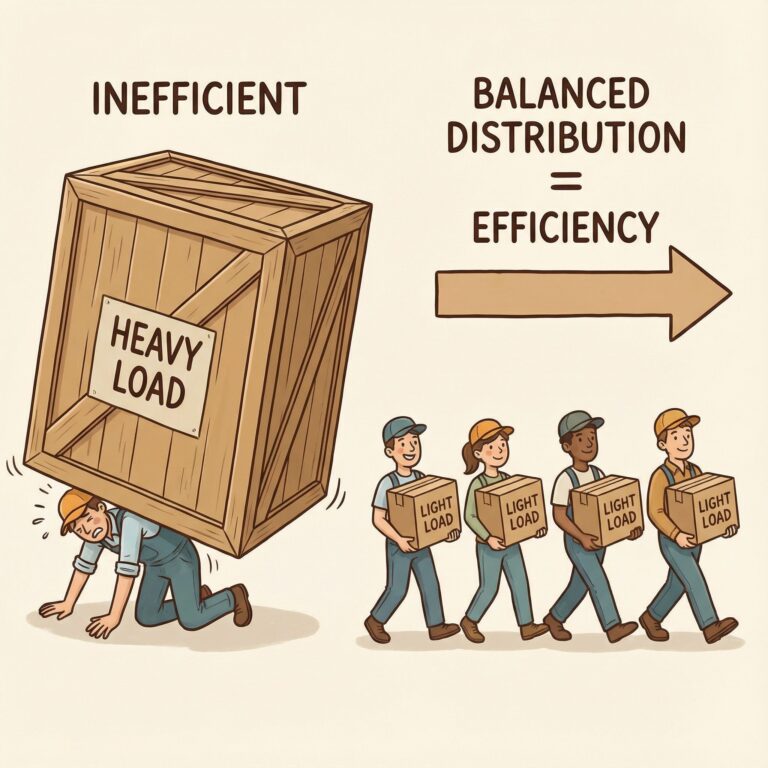
When Extra Deals May Fail Us

The Hidden Costs of Pay Bonuses
Pay bonuses, meant to spur workers to do their best, often lead to big troubles for companies. These plans can turn into pitfalls that hurt the mood and long-term success of a company.
Impacts on Worker Motivation and Behavior
True drive to work drops under usual bonus setups. When folks focus mainly on money prizes, their inner drive to perform well and innovate dips. This shift pushes a culture where short-term gains win over real company growth. 안전놀이터
Teamwork Vs. Personal Goals
- Less talk among groups
- More job stress
- Weaker teamwork
- Bending rules for one’s own profit
Try These Pay Methods Instead
- Sharing company profits
- Offering stock in the company
- Many benefit options
- Long-term bonus setups
Paths to Long-term Growth
- Quality-focused goals
- Better customer service
- Supporting new ideas
- Enduring work methods
These ways keep a company strong, keep staff engaged, and continue to build value over time.
A Deep Look at The Mind Game Behind Bonus Pay
Understanding Money Bonuses and Our Reactions
Pay rewards deeply shape our work actions, but judging their success is tricky. Money incentives bank on the idea that cash pushes us to excel, but studies suggest it’s more involved.
The Cut to True Motivation
- Fewer new ideas
- More focus on numbers than quality work
- Less risk-taking
How Teams Function and Perform
- Conflicts that break teamwork
- More worry at work
- Tweaking results for personal gain
- Ignoring non-numeric contributions
The Hidden Costs Behind Bonuses
- Short-term choices over bold future actions
- Preferencing safety over courage
- Weaker team spirit
- Focusing on personal success over team victory
How Bonuses Shift Decisions
- Focus on immediate results, not long-term growth
- Choosing tasks that profit now
- Fewer innovations
- Acts just aimed at snagging that bonus
Spotting this explains why traditional bonus mechanisms often miss their mark, initiating cycles of lesser wins and company troubles.
A Guide to Mixing Instant Gain with Lasting Growth
When Bonus Culture is Tough
Companies big on bonus schemes face a challenge in balancing quick cash gains with sustainable growth. This aim mismatch pushes everyone towards fast results, which can weaken a company’s ongoing success.
Choices and Tactics
- Less spending on new initiatives
- Delaying improvements
- Insufficient backup roles
- Putting quick wins above lasting growth
Novel Work and Safe Choices
- Trying big new things
- Long-term major projects
- Revolutionary methods
- Opportunities to expand in the market
Using Metrics That Last
Signs of Sustained Success
- How we retain customers
- How staff develops
- Strength of incoming projects
- Expanding our market role
- Brand performance
Key Points of a Strong Bonus Plan
- Long-term targets
- Notable milestones
- Marks of lasting progress
- Creating value for everyone involved
Tactics for Companies Targeting Growth
- Long-term value measures
- Enduring work practices
- Monitoring new ideas
- Broadening what the company can do
Understanding How Bonuses Can Complicate Work and Solutions

The Tough Sides of Bonus-Driven Ambiance
Over-focusing on bonuses and personal gain schemes creates tough dynamics at work that seriously affect a company’s performance. When companies prioritize individual wins over team success, workers view winning as essential, damaging teamwork and collective efforts.
Negative Actions from Competition
- Holding onto information
- Claiming credit and belittling others’ efforts
- Blocking opportunities and controlling gateways
- Sabotaging others’ work and obstructing intentionally
- Manipulating facts and crossing ethical lines
These actions create deep divides in companies, resulting in reduced productivity and fewer innovations. The environment fostered breeds distrust, keeps teams apart, and degrades how well we serve customers.
How Severe Conflicts Affect Companies Long-Term
- Increased burnout and stress
- Valuable employees leaving frequently
- Reduced edge in adapting and competing
- Less collective learning
- Challenges in aligning strategies
When employees focus only on competing, they overlook major market opportunities and threats. This limited focus diminishes a company’s ability to respond to market shifts and maintain a robust stance against competitors.
Hidden Costs of Bonus Plans
Monetary Consequences Beyond Wages
Bonus schemes entail significant hidden costs that stretch far beyond just the paid cash. These plans affect how teams operate through reduced communication, less information sharing, and diminished long-term strategic thinking, as employees zero in on immediate bonus targets.
The Burden of Managing These Plans
Companies bear substantial burdens in administering bonus plans. This includes investing in intelligent tracking systems, involving HR in calculating bonuses, and managerial time spent resolving disputes over bonuses. A notable hidden expense comes from gaming the system, where employees focus on measurable aspects while neglecting vital tasks not measured.
Costs of Job Turnover and Psychological Impacts
Employee turnover due to bonuses incurs high costs when individuals leave after not receiving expected bonuses, taking crucial knowledge with them. The psychological toll of bonus plans is evident in increased stress and anxiety, leading to higher health costs and reduced productivity. Additionally, these plans can gradually erode genuine work motivation, fostering a need for external incentives over genuine job satisfaction.
Additional Unseen Expenses
- The complexity of measuring performance
- Deterioration in teamwork
- Preference for safe choices over bold initiatives
- More competitive behaviors
- Less sharing of knowledge
- Emphasis on short-term objectives over significant future goals
Strategies to Break Free from Dependency on Bonuses
Understanding Our Reliance on Bonuses
Dependence on bonuses poses a significant challenge in today’s work climate, necessitating profound shifts in how we incentivize. Breaking free demands a comprehensive approach that considers both psychological conditioning and financial adjustments.
Initiatives to Implement Change
Dialogues and Cultural Transformations
- Empowering individuals to manage their tasks
- Enhancing skill proficiency
- Aiming for significant objectives
Revising Financial Incentives
- Improved base salaries
- Expanded benefit packages
- Compensation-based recognition programs
Alternative Motivational Tactics
Fostering Career Advancement
- Funding for educational pursuits
- Programs to enhance skills
- Leadership pathways
Balancing Work and Personal Life
- Choosing work locations
- Selecting work hours
- Extended breaks for sustained tenure
Timing for Implementing Changes
Optimal Moments for Alterations
- Minimal disruption
- Wide acceptance
- Positive perceptions
Monitoring Performance Outcomes
- Engagement levels
- Indicators of achievement
- Retention rates
- Productivity measures
Compensation Methods that Encourage Success
Innovative Profit-Sharing Approaches
Profit-sharing has emerged as a compelling alternative to traditional bonus systems, establishing a clear connection between employee earnings and company performance.
Acquiring a Stake in the Company
- Stock option offerings
- Stocks reserved for duration (RSUs)
- Stock purchase plans (ESPPs)
These methods convert employees into stakeholders, incentivizing them to work harder and more cohesively across the company.
Compensation Tied to Skills
- Acquiring new technological abilities
- Developing leadership capabilities Murkbound Casino
- Mastering diverse job functions
Rather than solely focusing on ambiguous metrics, these plans promote continuous learning and clear advancements in skills.
Comprehensive Compensation Packages
- Competitive base salaries
- Flexible benefits tailored to individual needs
- Funding for professional development
- Work-life balance initiatives
This holistic approach addresses multiple employee needs while aiding the company’s growth and strengthening its market position.

